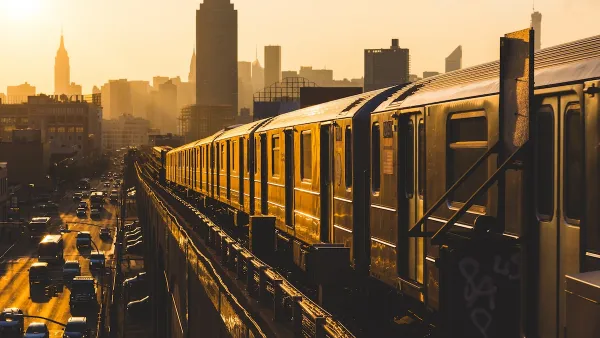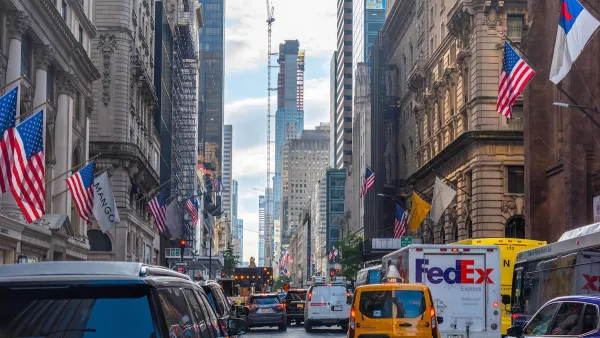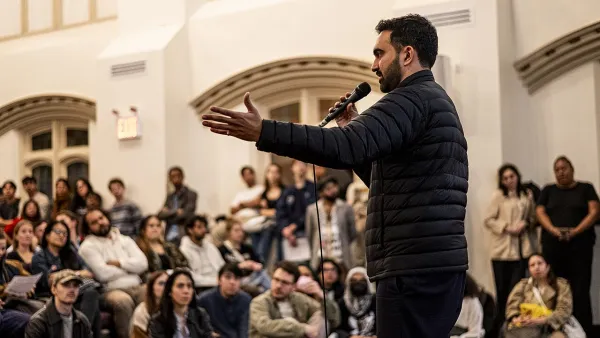Goldman Sachs' new headquarters in New York is "modern but nowhere near the architectural cutting edge; neither cheap nor extravagant; and efficient without seeming merely functional." Paul Goldberger dissects the new Henry Cobb design.
"These days, it would be understandable if Goldman Sachs wanted to disappear." The fallout from the financial crisis, including, reportedly, a criminal investigation by federal prosecutors is enough to make a corporation recede from public view. This design achieves this aim, while satisfying "the firm's long-standing obsession with being both extremely powerful and utterly inconspicuous."
The article studies the contemporary relationship between large corporations, the cities which provide their headquarters, and the architects employed to build them. Goldberger finds the interiors full of impressive touches, but the exterior elevations "unlike New York's most admired business temples, will never mean much to people who don't work in it."
FULL STORY: The New Goldman Sachs Building at 200 West Street

Maui's Vacation Rental Debate Turns Ugly
Verbal attacks, misinformation campaigns and fistfights plague a high-stakes debate to convert thousands of vacation rentals into long-term housing.

Planetizen Federal Action Tracker
A weekly monitor of how Trump’s orders and actions are impacting planners and planning in America.

In Urban Planning, AI Prompting Could be the New Design Thinking
Creativity has long been key to great urban design. What if we see AI as our new creative partner?

King County Supportive Housing Program Offers Hope for Unhoused Residents
The county is taking a ‘Housing First’ approach that prioritizes getting people into housing, then offering wraparound supportive services.

Researchers Use AI to Get Clearer Picture of US Housing
Analysts are using artificial intelligence to supercharge their research by allowing them to comb through data faster. Though these AI tools can be error prone, they save time and housing researchers are optimistic about the future.

Making Shared Micromobility More Inclusive
Cities and shared mobility system operators can do more to include people with disabilities in planning and operations, per a new report.
Urban Design for Planners 1: Software Tools
This six-course series explores essential urban design concepts using open source software and equips planners with the tools they need to participate fully in the urban design process.
Planning for Universal Design
Learn the tools for implementing Universal Design in planning regulations.
planning NEXT
Appalachian Highlands Housing Partners
Mpact (founded as Rail~Volution)
City of Camden Redevelopment Agency
City of Astoria
City of Portland
City of Laramie





























